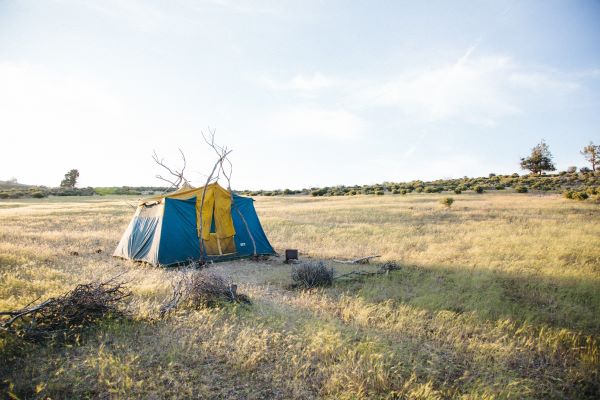Agritourism is a booming business. When landowners allow paying visitors to explore their property, it’s a win-win situation — the farmers increase their revenue and the tourists enjoy new experiences like horseback riding, berry picking or even sleeping under the stars. Farm camping has become especially popular since the pandemic since people want to get outdoors but avoid the crowds at national parks. How will this new form of tourism impact African agriculture?
The Pros and Cons of Farm Camping
Like all ecotourism activities, farm camping is a nuanced issue.
Benefits
The first and most apparent benefit is farmers can supplement their agricultural income. They can situate their campsites in areas with poor soil or little rainfall, turning a previously useless tract of land into a tourism goldmine. Opening the property up to visitors adds another revenue stream that doesn’t depend as heavily on weather conditions as crops and livestock. Farmers can use this money to plant more crops, buy better livestock feed, repair broken infrastructure or expand their farms.
Another benefit is people living in urban areas get to experience the outdoors. Farm camping is often less expensive than a national park. Campsites are also usually less concentrated on a farm than in government-run areas, minimizing their ecological impact. Visitors can avoid the crowds that so often drive animals away and may catch rare glimpses of wildlife up close, allowing them to take photos and make lasting memories.
The income visitors bring to a farm could make up for livestock losses due to predators. For example, a visiting jackal would ordinarily be a negative experience on a farm. But when campers are present to take photos or videos of it, the extra income can at least partly make up for the loss of a sheep. This benefits both wildlife and people.
Visitors may also get to experience common agricultural activities. Some farmers offer people the chance to milk cows, groom donkeys, spin yarn or plant crops. This is additional labor for the farmers and a fun experience for visitors. Participating in farm work can also give tourists a new appreciation for farmers since they better understand how hard it can be to work outdoors.
Downsides
One potential outcome of offering farm camping in Africa is negative human-wildlife encounters. This includes disturbing animals’ feeding, sleeping, hunting or social behaviors. Many animals fear unusual objects like tents and will modify their behavior around them. However, this issue will probably decrease as local wildlife gets used to seeing tents.
There is also the possibility of wildlife attacks. Animal attacks on humans are possible in most camping scenarios, but Africa has so many large carnivores and aggressive herbivores that the stakes are much higher. Farmers might have to pay for injuries inflicted on campers by hyenas, leopards, elephants or snakes. They should have campers sign a liability waiver to absolve themselves of this responsibility.
While most visitors are respectful, there will always be people who make too much noise, keep the lights on at night or leave their trash behind. In addition to their agricultural duties, farmers will have to play the role of park rangers and keep unruly visitors in check. They may have to mediate conflicts between campers, help visitors in the middle of the night or evict people from the property.
A 2021 study found 27% of South African farmers offered some form of agritourism, such as wine tours, visits to game ranches and farm stays and camping. However, the country is one of the top tourist destinations in Africa. Landowners in less-visited countries will have to work harder to attract visitors. Initiatives like Agritourism Africa may help them better advertise their services.
A Great Addition to Agriculture
Farm camping will positively impact Africa’s agricultural sector. By creating an additional income stream, farmers can better care for their livestock and crops, weather low-yield seasons and potentially expand their operations. Plus, visitors will get to sleep under the stars in one of the last truly wild places on Earth.

Jane is an agriculture and environmental journalist and the founder and editor-in-chief of Environment.co, where she covers sustainability and eco-friendly living.










[…] Source link […]
Comments are closed.